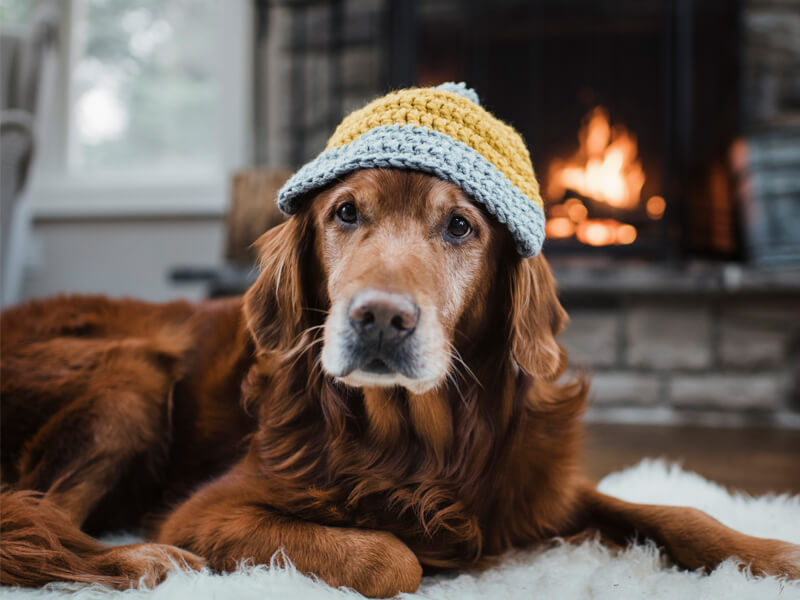Winter wellness for pets: 7 ways to keep your furry friend healthy
Staying well over winter isn’t just vital for humans – our pets can also feel the brunt of the cold.
A good diet, warmth and a little extra love and attention will help your best furry friend stay healthy over the colder months.
Follow these tips to help your pet thrive all winter long:
Get your pet a winter coat
Dog jackets aren’t just a fashion choice – they are crucial for some breeds when the mercury drops, Australian Veterinary Association’s Dr Julia Crawford says.
“If they’re shivering, you do need to provide them with some warmth,” Dr Crawford says.
“Breeds like whippets and greyhounds have low body fat, so if they’re cold a jacket will help. Breeds like pomeranians and samoyeds don’t need them.”
Make sure they can move comfortably and don’t bother with boots unless the ground is icy, she adds.
- Best friends: The many good reasons for having a family pet
Monitor animals with winter bugs
Like humans, cats, dogs and other small animals can get the flu.
Their symptoms are remarkably similar to humans, including coughing, sneezing, runny nose, fever and fatigue.
Not every flu needs a trip to the vet but monitor symptoms as bad cases can develop into pneumonia.
Kennel cough in dogs spreads more during winter so make sure your vaccinations are up to date, Dr Crawford says.
- Cats and your health: Can a feline friend make you sick?
Keep up flea treatment in winter
These critters don’t like the cold but it’s a common misconception that flea treatments are not needed over winter.
“Up to 70 per cent of a flea’s life cycle happens on the animal and they are inside in the warmth, so you need to keep flea medication up all year around in Australia,” Dr Crawford says.
Consider your pet’s dietary needs in winter
RSPCA Australia senior scientific officer Dr Sarah Zito says winter diets may differ depending on your animal’s lifestyle.
“Some animals will be less active and spend more time indoors during winter,” she says.
“These animals may need a slight reduction in their food to ensure they do not put on weight.
“At the other extreme, some animals will spend a lot of time outdoors in the cold doing a lot of exercise.
“For example, working dogs, and especially those animals who also sleep in non-heated conditions, these animals may need increased food.”
- Home truths: Is homemade or commercial food better for your dog?
Check with your vet about supplements
Some people like to load up on supplements containing vitamins D and C during winter, and there are pet versions available.
Dr Crawford doesn’t recommend these, but says if you want to give your animals a boost, check with your vet first to make sure it’s safe.
Keep up your dog’s walks through winter
Rain, hail, or shine, dogs need to keep their activity up during colder months.
“If anything, they love winter,” Dr Crawford says.
“They can go to the dog park and run around longer because they don’t get too hot like in summer.”
So, put on a raincoat and get your furry friend out for some exercise even if the weather is bad.
Give your pet a warm bed
All animals need a warm place to sleep.
“It’s a good idea to give them plenty of bedding to snuggle into,” Dr Zito says.
“And, if your small animals live outdoors, you should bring them inside in very cold and bad weather.”
Written by Alex White.





